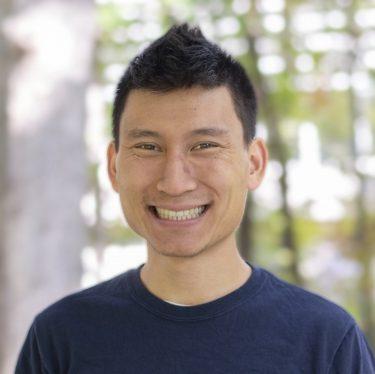
Julian Xie earned a bachelor’s degree at Duke University and conducted research with global health and technology access specialist Dr. Anthony So, a professor of the practice at the Sanford School of Public Policy. During his first year as a medical student, he served as a graduate research assistant with the WFPC.

Food policy is a field that touches the lives of many – the way that we produce, distribute, and access food underlies many of the problems we face as a society. That is why the WFPC designed its mission around four areas: hunger, obesity, agriculture & environment, and food safety.
Moreover, our center and many advocates in this space are working to increase the level of collaboration between the different sectors encompassed by the food system.
Xie contributed to the center by creating a database of needs assessments on the Durham County food system (requiring collating large datasets across multiple domains) to present to the local food policy council, to aid in their priority setting.
“We quickly began to view Julian as a teammate and colleague, rather than another student worker,” said Sarah Zoubek, WFPC associate director. “I personally dubbed him our “ambassador” to the Duke Health System. What’s even more inspiring is that during his time as a medical school student and an RA for our new center, Julian spent what little free time he has as a radical mover and shaker on campus and beyond.”
Xie compiled data across 37 metrics on 12 rural NC counties and made evidence-based recommendations for project site selection. He also compiled and summarized metrics to evaluate our food systems’ health intervention outcomes. And, he analyzed healthy campus and hospital procurement initiatives best practices to deliver to our Duke Healthy Campus Initiative Food & Nutrition Committee.
Root Causes
In addition to his medical school work in the primary care leadership track and for the WFPC as an RA, he demonstrated incredible leadership and entrepreneurial potential by founding Root Causes, a Duke Medical School student organization dedicated to improving the food system.
Root Causes has engaged about 60 or more medical students in educational events, community service projects, and advocacy efforts. He single handedly built the student group into a program with robust participation and leadership, and launched impressive projects, including a “Fresh Produce Program,” providing locally-sourced produce and health education materials to food insecure patients once a month at the Duke Outpatient Clinic.

Xie led the entire effort: coordinating the local foods procurement, securing grant funding and approvals from Duke’s administration, and establishing volunteer staffing.
He organized a contingent of Duke Medical students to visit with North Carolina legislators on behalf of a Healthy Corner Stores Initiative on two different occasions (which ultimately received funding in the North Carolina budget).
He is actively participating in a Duke Healthy Campus Initiative on a committee focused on healthy food environment standards at the medical school (including meeting/event catering and also hospital food procurement). He is already leading a survey within the medical school to gather data to present to the administration on this effort. What’s more, he is actively involved with the local food policy council in supporting their work.
“Julian is passionate about driving innovative food systems change to benefit human and planetary health,” said Zoubek. “He is a natural leader, and is truly results-oriented in wanting his projects to impact marginalized communities.”
Making sense of data
In addition to his leadership and network weaving skills, Xie applies systems thinking to synthesize large amounts of complex data into a succinct and meaningful picture. He has also demonstrated a canny ability to interact easily at a variety of levels and across multiple stakeholder types.

He engages easily with highest levels of Duke’s administration, at a NC legislator’s office, or among grassroots community groups, and he has extensive experience bridging medical, policy, business, and humanities fields.
“It’s exciting to see that Julian (who is in medical school and excelling at his studies) is regularly mentioned in campus meetings as a key player for several initiatives by a variety of stakeholder types,” said Zoubek. This includes reps from the NC legislature, the Duke Healthy System Chancellor, or by local food policy council leadership in Durham.
“I can tell that Julian truly has a deep understanding of the complexity and interconnections within our food system. And, I would say he plays a part of the connective tissue even here at Duke in bridging various elements of our food system – from volunteering at the Duke Campus Farm (production) to implementing a food pantry at the Duke Health System (hunger), to exploring ways to create healthier food environments in hospitals (nutrition/obesity), to serving as an RA at one point on antimicrobial resistance (food safety),” said Zoubek.
“He is putting in the sweat equity such that he will absolutely leave a lasting mark at Duke and within the Durham community in improving our local food environments,” she said.
